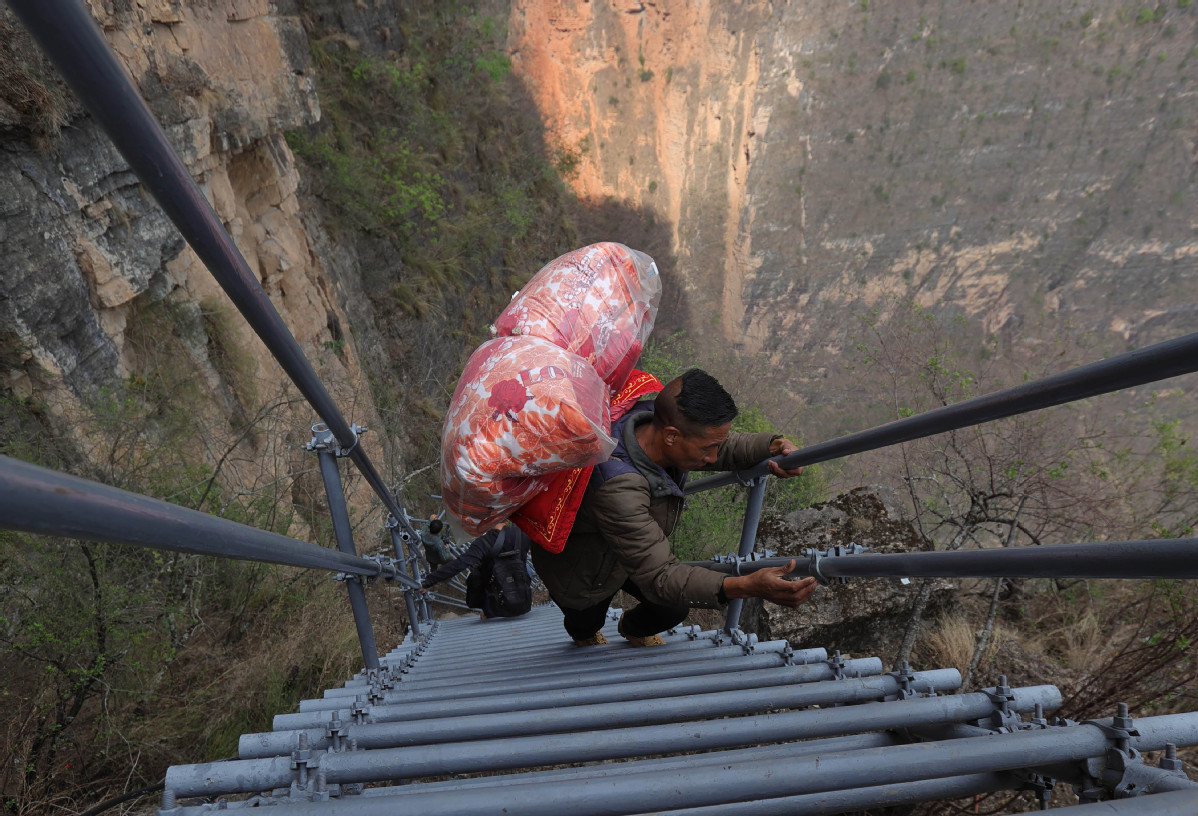Villagers step up to new homes, better lives
Resettlement lays foundations for community development. Alexis Hooi and Huang Zhiling report from Zhaojue, Sichuan.


Yi ethnic group member Mose Ziha strummed his guitar as he looked into his mobile phone propped up in front of him.
The 44-year-old then burst into song, livestreaming in the Yi language a soothing folk melody about families warmly welcoming guests into traditional homes.
That was exactly what Mose was doing-only his home is a gleaming unit in a months-old apartment complex, complete with running water, electricity and other modern amenities.
"It is very comfortable here and I'm enjoying facilities I never had before. I have everything I need," he said of his apartment in Zhaojue county, Liangshan Yi autonomous prefecture, Sichuan province.
Mose belongs to one of more than 80 households from Atuleer village that started moving into the new apartments in the county seat in May as part of the latest efforts in a nationwide poverty alleviation drive.
Zhaojue has made significant achievements in poverty alleviation, in line with the nation's aim to eradicate extreme poverty-defined as living with less than 2,300 yuan ($330) in annual income-by the end of this year.
By the end of last year, 136 of the 191 impoverished villages in Zhaojue had been lifted out of poverty. A total of 67,932 poor people from 15,239 households shook off poverty and the poverty rate dropped from 31.8 percent to 11.3 percent, according to local government figures.
As of mid-June, the remaining 55 impoverished villages in the county, covering 7,081 households with 33,073 people, had all shed their poverty label.
In Atuleer alone, the per capita income of residents is forecast to rise to more than 9,000 yuan this year, nearly five times the 1,961 yuan income of poor households in 2014.
Measures to fight poverty range from housing and health to entrepreneurship and education. The county's plans include safe housing projects for more than 4,800 needy households, over 100,000 night school classes for farmers, nearly 10,000 skills and entrepreneurship sessions, and extensive public health and environmental projects for rural families.
Business enterprises and groups from more developed coastal areas also work with the agricultural sector and help build Zhaojue's industries.
Liao Yuchao, the deputy county head leading the anti-poverty push, said the approach is a multilevel, multipronged one, rooted in the provision of basic infrastructure and services and the development of income channels that tap the county's geographical and economic advantages and other strengths.
"This is a targeted effort. We must ensure that our residents continue to contribute to the economy and be part of society," he said.























